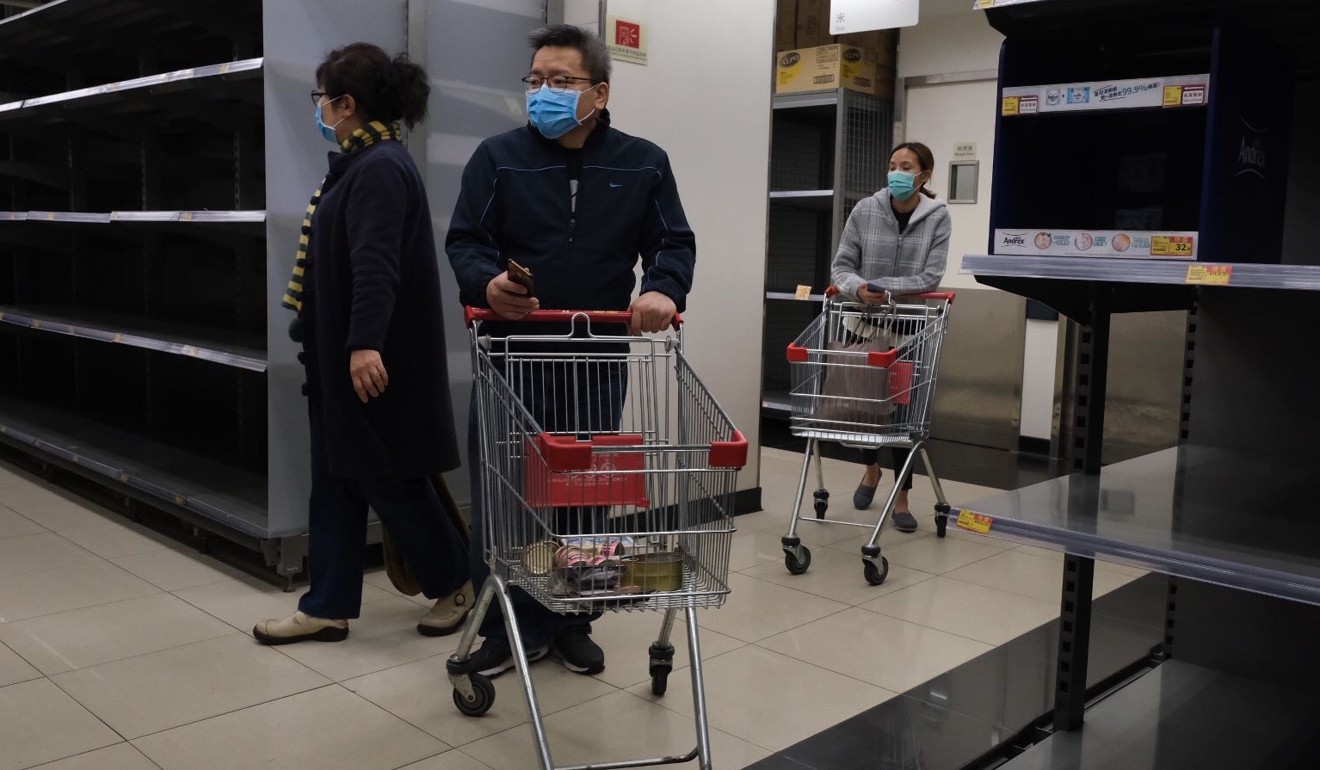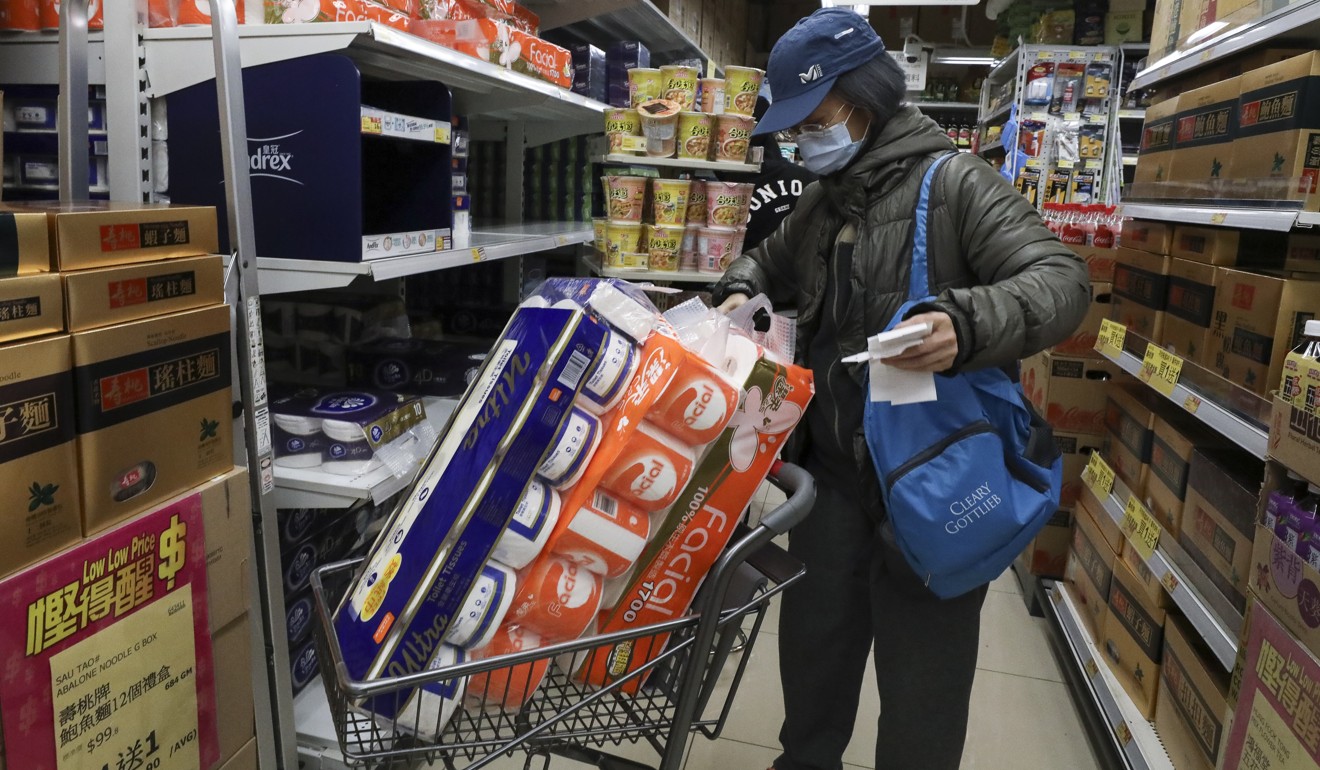
Better safe than sorry: that’s the thinking behind the irrational behaviour of hoarding in Hong Kong amid coronavirus outbreak
- We all like a bargain but Hongkongers are particularly gung-ho about getting their money’s worth
- Bargains are undoubtedly an everyday business in Hong Kong and bargain hunting is certainly something of a pastime here.

I have to admit that it didn’t surprise me at all when the news broke about a run on toilet paper following a panic-shopping spree across Hong Kong earlier this month as the coronavirus outbreak continues to escalate.
Hoarding is nothing new in Hong Kong, since local residents love a bargain.
Sometimes, Hongkongers will even buy bargain items they don’t really need, except maybe the off chance.
Plus, it also seems like good sense to buy things in case of a rainy day, so why not? It all comes down to the mindset of “better safe than sorry”; and that’s the exact thinking behind the irrational behaviour of hoarding.
To be honest, we all like a bargain but Hongkongers are particularly gung-ho about getting their money’s worth.
For many Hongkongers, the idea of saving money or paying less than somebody else is so thrilling that it’s almost as exciting as realising you have made an investment with killer returns in a short time.
Another good feeling that’s triggered by a bargain buy is the thought of someone else paying the price for you once the discount is gone. Cha-ching!
Bargains are undoubtedly an everyday business in Hong Kong and bargain hunting is certainly something of a pastime here.
When it comes to shopping for essential household items like cleaning supplies and food with a shelf life of up to a year (e.g. instant noodles and rice), the general Hong Kong attitude is: more is better than less.

Therefore, these items are always on a “twofer” or “threefer” discount (i.e. getting two or three items for the price of one).
I know of an elderly woman who lives alone in a two-bedroom flat in North Point. I find it pertinent to mention that having more than one bedroom is something of a rarity in Hong Kong, as living space is scarce and at a premium in the city.
However, rather than using her extra bedroom for its intended purpose, she has dedicated the space storing innumerable amounts of household essentials like toilet paper, shampoo, moisturiser, and even non-perishable food like instant noodles, canned food, etc.
She spends a lot of time in Canada with her family anyway, so in actuality she doesn’t really need to stockpile these items. But her justification for her cache of items is that, “It’s just smart spending to save money when things are on discount.”
When it comes to smart spending, Hongkongers don’t prioritise customer service, so they will happily go to a substandard restaurant or café just to save a few bucks or might even go as far as subjecting themselves to hunger pangs just to get a cheaper – albeit smaller – meal.
You might have also noticed that many Hongkongers seem to take their lunch much later than most, but it’s not because they are tied up at work. Lunch meals are heavily discounted after 2.30pm at local casual diners, better known as a cha chaan teng.

Say if a set lunch is priced at HK$55, it is sold as a tea set at HK$30 after 2.30pm. The only drawback is that the tea set might be slightly smaller than its HK$55 counterpart. But with the savings achieved, you could put it towards buying a second tea set.
In the end, you are getting (almost) two meals for HK$60. So, when it comes to bargain, cha chaan teng’s afternoon tea sets are definitely some of the best.
This bargain-pricing format is mutually beneficial. Besides bringing cost savings to diners, it also keeps the restaurants busy with frequent table turnover throughout the day, especially during the lull after lunch period and before dinner time. It’s survival and good business sense.
The bottom line is these restaurants have to attract plenty of diners to eat their affordable meals throughout the day so they can afford the unaffordable rent.
I was away when the panic-shopping spree began in the city, and only returned at the weekend. And it suddenly hit me yesterday that I have a scarce supply of everything at home, including toilet paper – the most precious commodity in Hong Kong at the moment – as proven by the fact that armed robbers stole about HK$1,600 worth of toilet rolls from outside a local supermarket earlier this week.
As for food, I don’t care because I can just survive on eating whatever is stored in the freezer. It’s not an ideal situation, but it’s sensible and cost-effective.
But I’m running low in the toilet paper department; down to just three rolls. Anyone care to spare me a couple, please?
Luisa Tam is a Post correspondent, who also hosts video tutorials on Cantonese language which is now part of Cathay Pacific’s in-flight entertainment programme